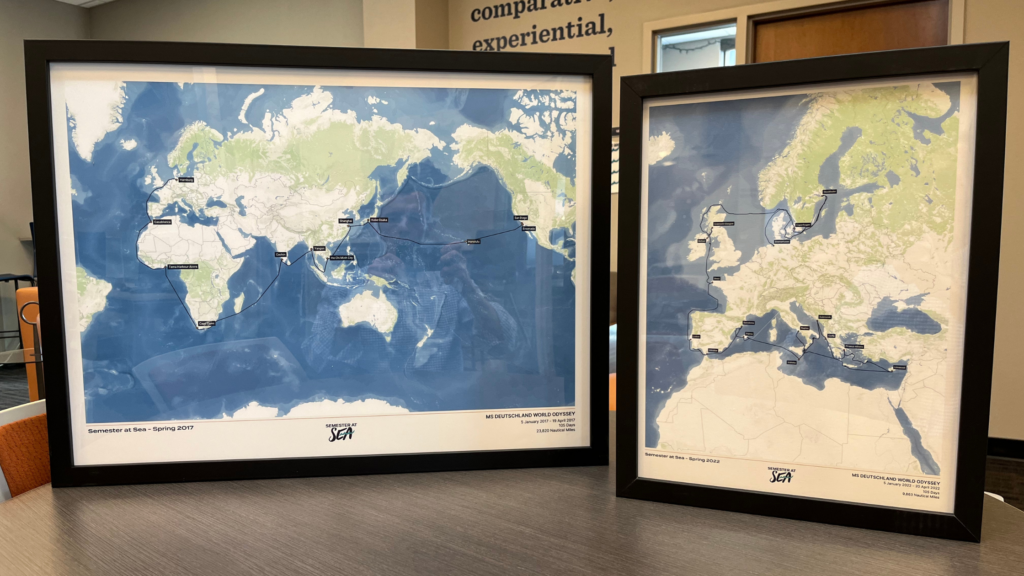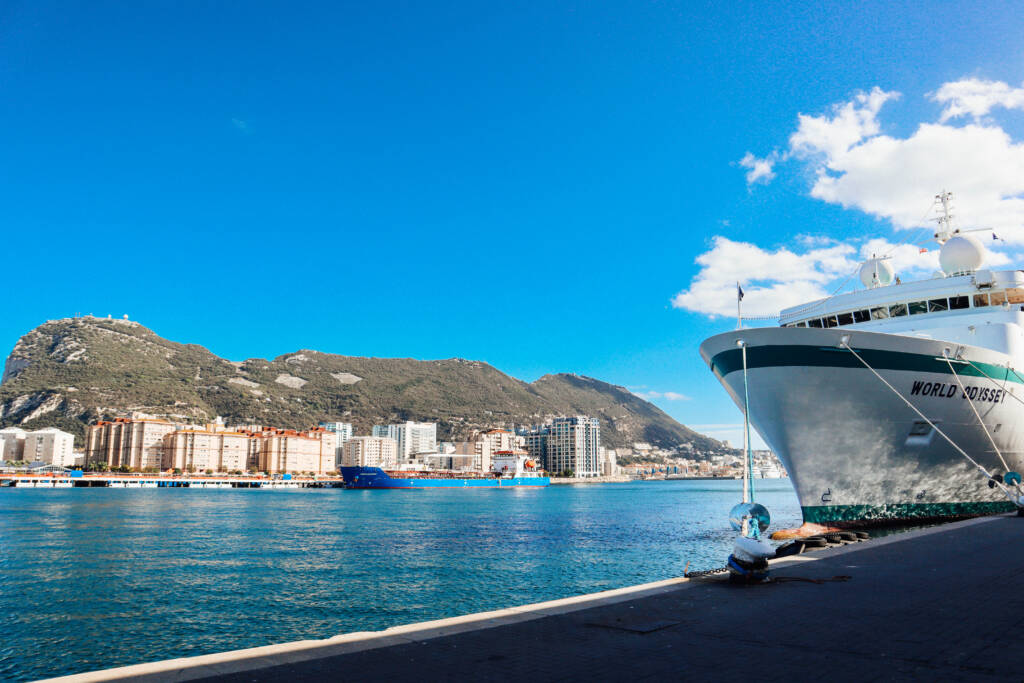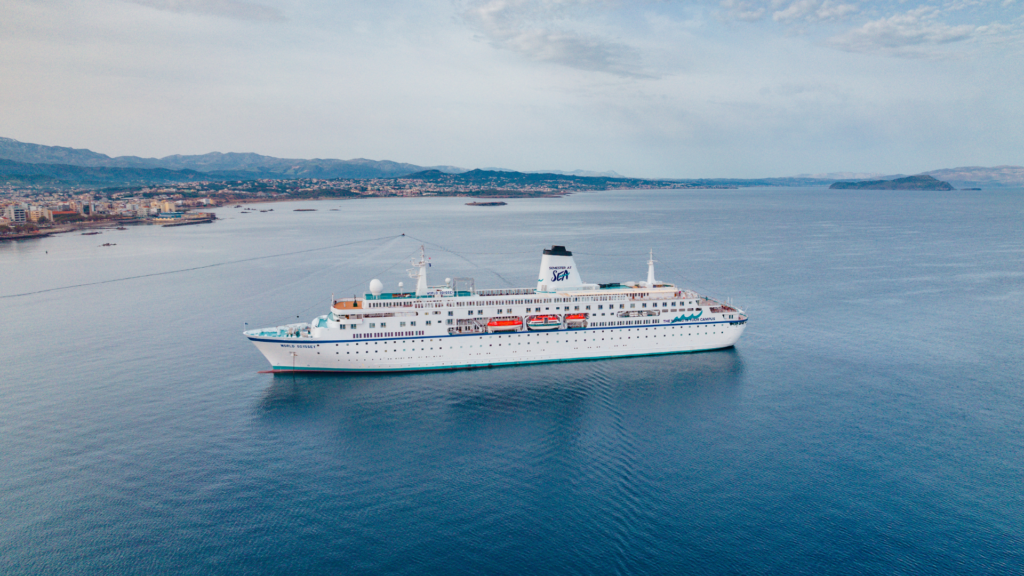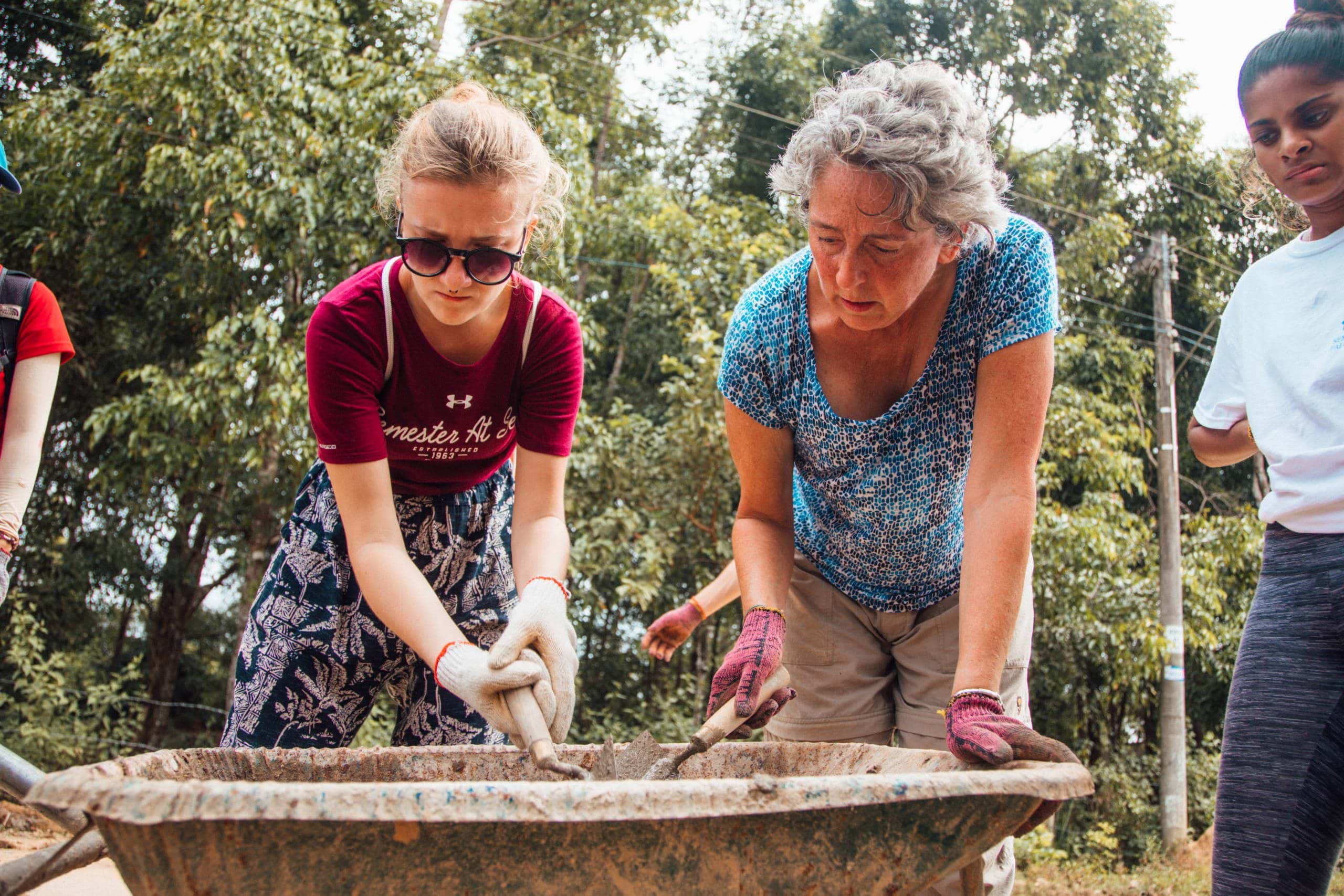
Every voyage, Semester at Sea welcomes a diverse range of students from around the world to join the living/learning community onboard the MV World Odyssey. On the Fall 2018 Voyage alone, there are 46 non-U.S. passport holding students from 23 countries sailing around the world. The international community on ship brings invaluable experience, ideas, and perspectives to the classroom, which enhance the opportunities for students to learn in a comparative, cross-cultural environment.
Do you ever wonder what it’s like to do Semester at Sea as an international or gap year student? We spoke with one of our Fall 2018 non-U.S. passport holding voyagers, Simona Radeva from Bulgaria, to help give insight into her Semester at Sea experience.
How did you get involved with Semester at Sea?
Semester at Sea is connected to the United World Colleges, so we get an opportunity to receive a scholarship for the voyage. I thought that would be an amazing opportunity so I went for it.
Did your parents attend the parent’s reception before embarkation?
Yes! My mom came to see me off. She heard about the parent’s reception before embarkation day so she adjusted her schedule so she could fit it in. Her English is not so good and sometimes she’s a little self-conscious of speaking it. But she went and made her way around the ship. When she saw the ship she was amazed to see how fancy it was. We all were actually! She met the deans and other representatives and said ‘you have to meet this person and this person, I told them all about you!’ It was interesting.
How is the non-U.S. passport holding community on-ship?
I noticed that it’s a relatively small community of internationals, but I can see that the Institute of Shipboard Education is trying to attract more people to go on SAS and I think that’s important. International students like me share our culture, our values, where we come from, so I think it’s a really good thing for SAS as well. I’ve spoken to Americans who have said ‘we’re really happy to have you here, it’s so great to hang out with you because you come from so many different places.’ I was really surprised because in the first few days, people were excited to hear that I was from Bulgaria and wanted to know more about my story.
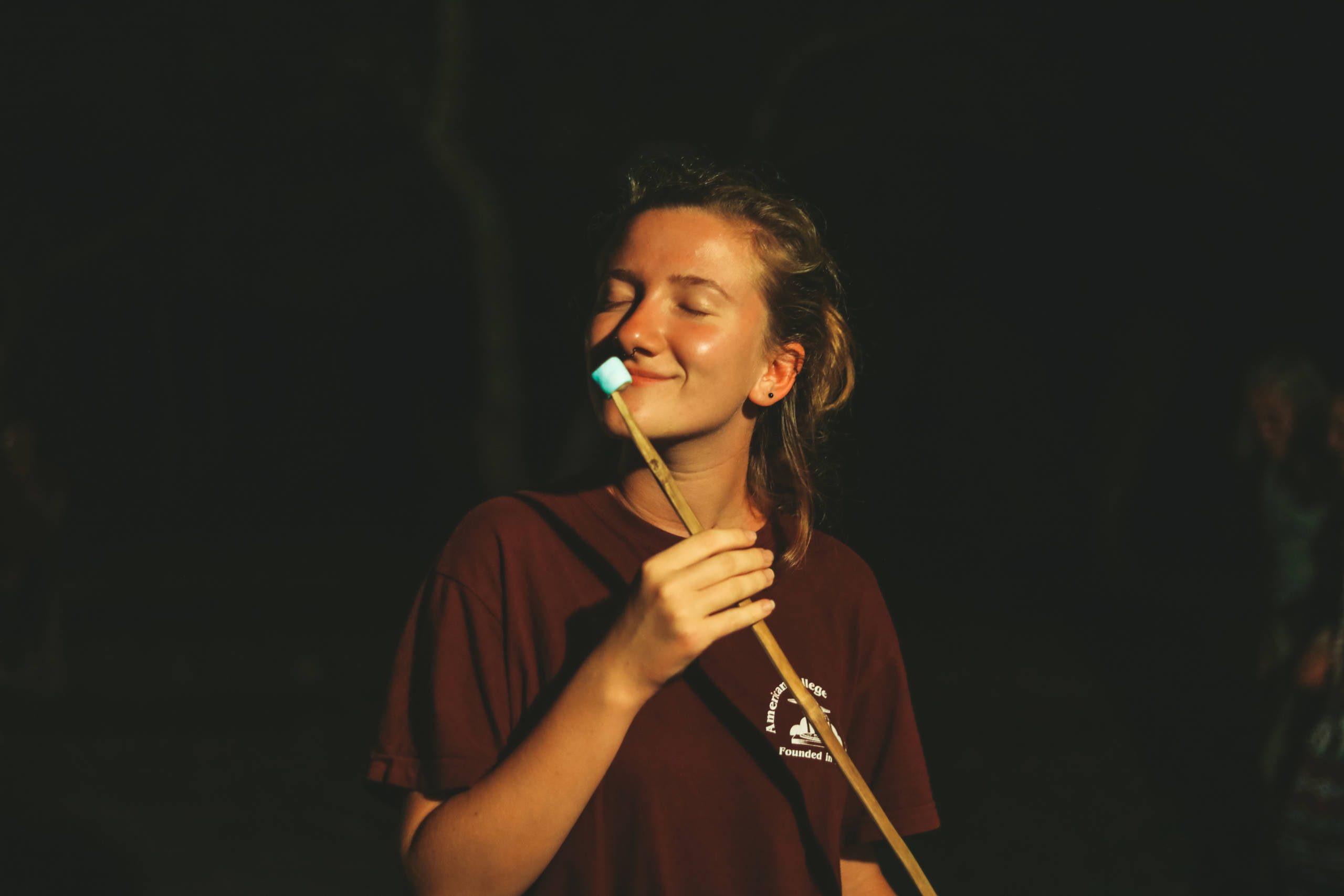
What was your most memorable day on-ship?
Taco Day. I’d never had a taco before in my life and having them on-ship was the first time I’ve ever had them. People in the U.S. are more exposed to it, but it shows what little things have been integrated into American culture and it’s cool to be exposed to it on the ship. Everyone was looking at me like ‘you’ve never had tacos?’ and I was like ‘of course I’ve never had tacos!’
Neptune Day was a close second. At first I really didn’t want to do it because it was raining and so cold, but then I saw how excited everyone was passing through the pool and kissing the fish. At some point, I was like ‘I want to do it!’. It wasn’t peer pressure, I just wanted to be a part of it like everyone else. Everyone around me was like ‘you did it!’ and that felt really nice.
What’s been your favorite country on the voyage?
This is my first time going to all the countries on our voyage. But I would say my favorite is Vietnam. I stayed in Saigon for two days and went to the C·ªß Chi tunnels. I didn’t have much background on the Vietnam War because it’s not a war that directly concerns Bulgarians. I didn’t know there was the segregation between the south and north, nor did I know about U.S. intervention. We saw a documentary told from the perspective of the guerillas living in the tunnels, definitely a different perspective from what someone from the U.S. would say. You could feel the pain in the voice of the woman who was narrating. I was looking at the movie and looking around at people’s reactions. I saw people shaking their heads and it was an interesting thing to witness. I didn’t take a side and wanted to see both sides of the story. It was very enriching and I’m happy that I did it.
What’s is like studying on a ship with mostly U.S. voyagers?
It has been very different. It has provoked mixed feelings in me because I thought American culture wouldn’t feel so different from where I come from because I come from a modern city in Bulgaria. There have been a lot of differences. There have been moments where there are inconsistencies in the way we communicate, and differences in the way we see the world, but I try to see these moments as an experience that I can learn from rather than something I try to change. The only thing we can do is try to contribute with our own knowledge and perspective. I tell Americans about my country, they tell me about their country, and I think that’s what it’s all about.
Has Semester at Sea changed you at all, and if not do you think it will later on in life?
It has definitely changed me, maybe in ways that I still don’t realize. During the voyage, you don’t really get enough time to process things right when it’s happening to you. But I feel like when I leave SAS I’ll get into contemplating about what has happened, what I’ve seen, what it means, how I can contribute to help make changes in the places we’ve been to.
